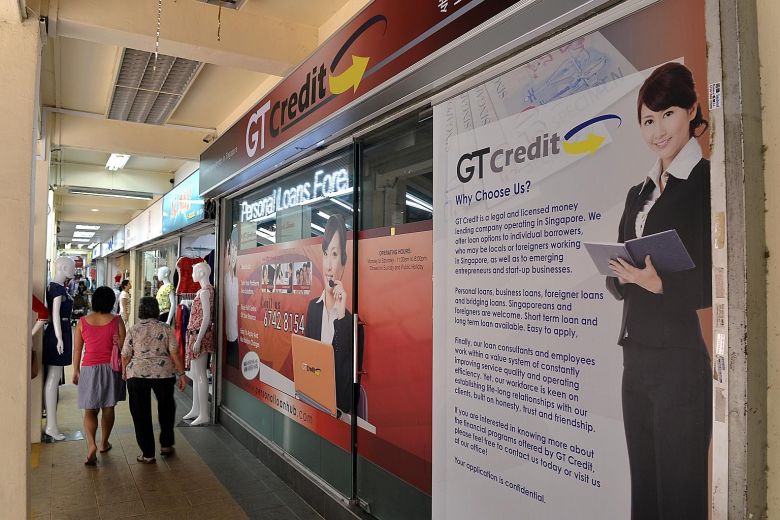Maids and foreign workers can get employers to bar them from taking up loans
Sign up now: Get ST's newsletters delivered to your inbox

The framework will stop licensed moneylenders from giving loans to Singapore citizens, permanent residents and foreign residents who are on the exclusion list.
PHOTO: ST FILE
Follow topic:
SINGAPORE - Maids and foreign workers can get employers to bar them from taking up loans from licensed moneylenders, under a self-exclusion framework similar to the one in place to stop individuals from entering casinos.
The self-exclusion facility was available from Monday (July 15) and individuals or third parties can apply through the Moneylenders Credit Bureau.
The framework will stop licensed moneylenders from giving loans to Singapore citizens, permanent residents and foreign residents who are on this list.
Third parties such as employers of domestic helpers or employment agencies can apply for the exclusion on behalf of potential borrowers only if consent is given by the individuals themselves, said the Ministry of Law in a briefing on Monday, giving details of the initiative that was announced in October last year.
The framework is being launched in the wake of a spike in the number of foreigners taking loans from licensed moneylenders. The number has risen over the last three years and remains high, said the ministry.
In the first half of this year, there were 53,000 foreign borrowers who took loans from licensed moneylenders, approaching the 55,000 unique foreign borrowers for the whole of last year. In 2017, there were 19,000 such borrowers and 7,500 the year before.
Another change announced by the ministry to further reduce the total amount that can be borrowed by low-income foreigners from all lenders will come into effect on Tuesday (July 16).
Under changes in the Moneylenders (Amendment) Act 2018 announced in November last year, foreigners earning less than $10,000 annually were to be allowed to borrow only up to $1,500 from all licensed moneylenders' combined.
But following the latest announcement on Monday, this will be lowered even more to $500 for foreigners in this income bracket.
"With the existing cap on borrowing cost at 100 per cent of the loan principal, this ensures that the maximum repayable amount, including loan principal and all permitted interest and fees, is kept to a more manageable $1,000 at any one point," said the ministry.
The ministry also announced a host of new measures to stem the increase in moneylending activities targeting foreigners, highlighting a recent trend that showed a surge in the number of work pass holders acting as guarantors.
The number of such guarantors grew from about 50 three years ago to about 6,000 last year, said the ministry. It added that some work pass holders were also found to have brokered or facilitated loan applications for fellow work pass holders in exchange for money.
To tackle this, the ministry said that starting Tuesday, licensed moneylenders can no longer accept foreigners as guarantors and are not allowed to grant loans that have been facilitated or brokered by unauthorised third parties.
The Ministry of Manpower (MOM) will also take enforcement action against work pass holders who broker or facilitate loans for gains, and this includes revoking their work passes.
Among other restrictions that will be imposed on the 158 licensed moneylenders here include a cap on the supply of unsecured loans that each lender is allowed to have on his books at any one time.
Under the new rules, they will not be allowed to lend to more than 300 foreign borrowers or extend more than $150,000 in total in principal loans to foreigners at any point in time. They also cannot grant loans to more than 15 foreign borrowers a month, and cannot lend money to more than 50 foreign borrowers a year.
The caps on moneylenders will kick in on Aug 15 to give the industry sufficient time to make the necessary system and process changes. The Law Ministry said the caps ensure that the supply of credit will be calibrated to a more sustainable level.
To address the social issues arising from moneylending activities, the Law Ministry as well as MOM and the Singapore Police Force are also working on education and enforcement efforts.
The MOM will continue to reach out and educate work pass holders on financial management and the risks and implications of borrowing, including the possibility of having their work passes revoked if they borrow from loan sharks.
Meanwhile, the police will be stepping up enforcement action against loan-shark syndicates.

